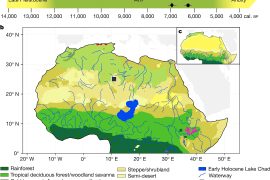
Animals care more about unmet expectations than fairness
The pursuit of fairness has long intrigued philosophers and scientists alike. Do humans hold a unique sense of fairness, or do animals share this trait?
For years, researchers have debated whether behaviors like jealousy are exclusive to humans or are prevalent among animals as well. A new study from the UC Berkeley sheds new light on this age-old question.
Rethinking animal fairness
Using data from 23 studies, the researchers conducted a meta-analysis involving over 60,000 observations across 18 animal species.
This effort, described as the “largest empirical investigation of non-human inequity aversion to date,” examined the concept of fairness as perceived by animals.
“We can’t make the claim that animals experience jealousy based on this data,” said Oded Ritov, a fourth-year Ph.D. candidate in UC Berkeley’s Department of Psychology.
“If there is an effect, it’s very weak and might show up in very specific settings. But it’s nothing like what we see in humans in terms of our deep-seated sense of fairness.”
The findings challenge widely held assumptions about animal behavior. According to Ritov, the evidence suggests that what might appear as inequity aversion in animals could instead stem from unmet expectations.
Human fairness: Key to complex societies
Humanity’s deep-rooted sense of fairness has played a vital role in building shelters, sharing resources, and developing complex societies.
This trait, known as “inequity aversion,” refers to our dislike of unequal resource distribution. Psychologists argue that this inclination influences how we judge fairness in everyday scenarios.
For example, consider siblings squabbling over toys. When one receives a seemingly better toy, the other might protest – not just out of envy, but because the distribution feels unfair. This intrinsic reaction is a hallmark of human fairness.
The debate over animal fairness
The debate over animal fairness gained traction after primatologist Frans de Waal’s landmark study. In a now-famous video, capuchin monkeys reacted strongly when given unequal rewards.
Monkeys receiving cucumber slices appeared content until they noticed others receiving grapes. One monkey, upon receiving a piece of cucumber while another enjoyed a grape, flung the cucumber away in protest.
This behavior was widely interpreted as evidence of inequity aversion. De Waal and others suggested that animals, like humans, dislike unfair treatment. Similar behaviors have been reported in corvids, dogs, and even mice. However, Ritov’s analysis offers a different perspective.
Expectations and disappointment
Ritov’s study highlights potential issues in prior research, including small sample sizes and a replication crisis that undermines broader scientific conclusions.
“We thought it’d be a valuable contribution to try to pull together as much data as we can on this question and see what kind of pattern emerges with the larger dataset,” Ritov explained.
The emerging pattern suggests that animals’ reactions may not reflect jealousy or fairness concerns at all. Instead, these behaviors might stem from unmet expectations.
For instance, in follow-up studies, monkeys reacted with similar outrage when grapes were placed in an empty cage, where no other monkey was present. This finding indicates that the animals’ behavior was less about comparison and more about their own unfulfilled anticipation.
“We think that the rejections are a form of social protest,” Ritov said. “But what animals are protesting isn’t receiving less than someone else. Rather, it seems like they’re protesting the human not treating them as well as they could.”
Humans and animals: A shared frustration?
While the study stops short of equating animal behaviors with human fairness, it does point to a shared frustration with unmet expectations.
This insight deepens our understanding of animal cognition and its differences from human behavior.
Animals may not resent inequity per se, but they do respond strongly to perceived mistreatment – a reaction that, while distinct, resonates with human experiences.
What makes humans unique
Human inequity aversion stands out for its complexity and depth. Unlike animals, humans possess the cognitive ability to weigh fairness against social, cultural, and ethical norms.
These layers of reasoning underpin our ability to build and maintain societies where fairness plays a crucial role. Ritov’s work highlights how these traits differentiate us from other species, even as we continue to seek parallels in the animal kingdom.
The study’s findings remind us of the importance of questioning assumptions and interpreting behaviors with care.
Understanding what truly makes us human requires peeling back the layers of evolution and culture – and sometimes re-evaluating what we thought we knew about our closest animal counterparts.
The study is published in the journal Proceedings of the Royal Society B Biological Sciences.
—–
Like what you read? Subscribe to our newsletter for engaging articles, exclusive content, and the latest updates.
Check us out on EarthSnap, a free app brought to you by Eric Ralls and Earth.com.
—–













